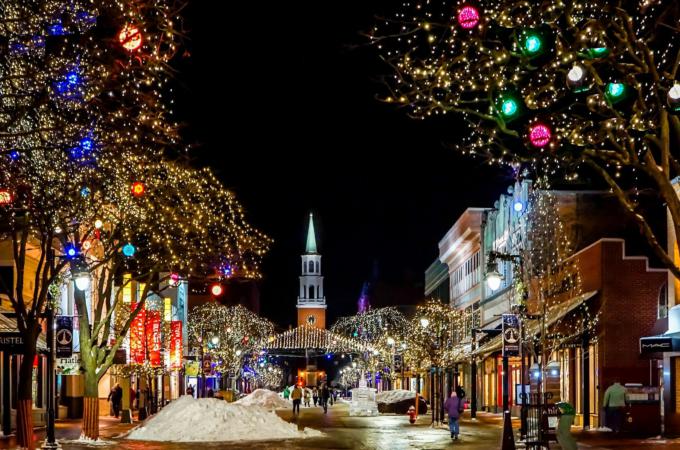It's Christmas
The world is in turmoil and strife -- family anxiety, international unrest, markets uncertain, mayhem in Paris, shootings in a Strasbourg Christmas market. Bethlehem today is not the peaceful scene where a heavenly stranger should be born.
This is today, but also the world ages ago when Christ was about to be birthed -- Herod cruelly murdering his rivals, the three kings heeding a warning to find another route to their homelands, inns closed to travelers or overcharging their guests. Bad tempers everywhere.
Enough bad news for December. There is some good news. For instance, worldwide poverty is down. But don't ask a college student about this finding, as they are largely unaware of the trend. But according to Bill and Melinda Gates, as they wrote in the New York Times on Sept. 2, more than a billion people have overcome extreme poverty (that is, living on the equivalent of $1.90 per day) since the turn of the millennium. This drop in the number of poverty-stricken is one of the least understood developments in our world.
Should we include the ownership of cell phones or the denim wardrobe as criteria for poverty? The number of mobile phone users worldwide is expected to reach 4.68 billion in the New Year. Futures for cell phone technology look optimistic.
Of course, not everyone has a bright outlook this season. Consider the widow who lost her spouse after agonizing years of watching the decline of her loved one; or a job loss, devastating to self-confidence; or even an embarrassing Patriot's loss. Not all is comfort and joy this time of year.
Nonetheless, we are bound to take joy from our holiday customs and rituals. Each family has its own celebrations. Some hold caroling parties, and some keep ovens hot with traditional breads and cakes our grandparents served. We write greeting cards, play harps, set up the creche, and decorate the halls with holly and ivy. They are gendered items, the ivy considered the female, while holly is considered the male. The one which was brought into the house first in olden times indicated which sex would rule the house that year. Millennials take note.
Low light is preferred this season. Our church is illuminated only by candles for Christmas Eve. Lanterns are used in European countries to light the trail to church for the Christmas Mass. Asian families may use paper lanterns for church services and create origami ornaments. Tiny oil lamps are lighted in Spanish homes as the first star appears in the heavens on Christmas Eve. The Irish recall the importance of the candle in the windows -- during the English persecution, an illuminated window signaled a safe place for hunted Catholic priests.
One of our most visible Christmas symbols in modern times is the poinsettia. Dr. Joel Poinsett was sent to Mexico as a minister from the U.S. He brought back the first small wild plants with their tiny yellow flowers surrounded by gorgeous red leaves to his garden in South Carolina. From there they became the "Christmas flower."
Smells and bells are all important. As this paper reported, young people like old traditions. Two thousand years before the birth of Christ, bells were used for joyful as well as sad occasions. Since then cathedrals worldwide have rung out the birth of Christ. In some places bells are rung as the creche is lighted (if your's lights). Sometimes St. Nicholas carries a bell in one hand and switches in the other. Santa Claus' reindeer wear sleigh bells. Chimes proclaim the entrance of Christmas in some parts of America. We anticipate the bells in St. Peter's Basilica each Christmas Eve, even if only via television.
As we are reading the Nativity in the book of Luke, it seems almost too short on detail for such a momentous event. Likely much of our Christmas imagery comes from song. Our hymns are a poignant reminder of ancient prayers and sentiments. Carols originated centuries ago, even back to the observance of the Roman Saturnalia and then into Christian times. Almost every great writer, creative poet and musician has contributed to our repertoire of musical literature. Ethnic, or folk songs, have lasted through the ages, some still in native tongue. Likely, most Masses will sing "Silent Night," the Austrian Franz Gruber wrote one quiet night.
A local, Henry W. Longfellow wrote, "For hate was strong and mocks the song of peace on earth, good will to men." In his hymn "I Heard the Bells on Christmas Day," he ends with "The world revolved from night to day, A voice, a chime, a chant sublime, of peace on earth, good will men." The cherished old songs seem quite modern after all.
- Kevin and Marilyn Ryan, editors of "Why I'm Still a Catholic," worship at St. Lawrence Church in Brookline, Mass.



















